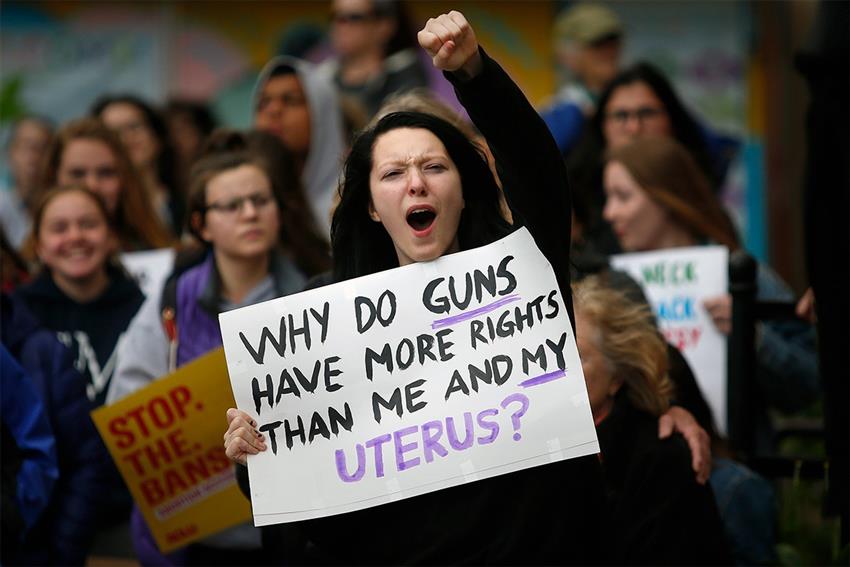
Revisionism is a general term that can be used with both positive and negative connotations for any scholarly practice dedicated to revising an established position.
That is its benign meaning. Another is: “A movement in revolutionary Marxian socialism favouring an evolutionary rather than a revolutionary spirit”
Contemporaneously in the 21st Century we are witnessing revisionism in an exaggerated form as officials of the US Supreme Court overturn the long-established Roe v. Wade decision. You can read about the Supreme Court decision here: https://apple.news/AT2Etc5J8SwiNWj8vrvjzUQ
Those who are unfamiliar with this decision might benefit from this account, taken from Wikipedia: https://en.wikipedia.org/wiki/Roe_v._Wade
Roe v.Wade (410 U.S. 113 (1973), was a landmark decision of the U.S. Supreme Court in which the Court ruled that the Constitution of the United States generally protects a pregnant woman's liberty to choose to have an abortion. The decision, which struck down many U.S. federal and state abortion laws, fuelled an ongoing debate in the United States about whether, or to what extent, abortion should be legal, who should decide the legality of abortion, and what the role of moral and religious views in the political sphere should be. It also shaped debate concerning which methods the Supreme Court should use in constitutional adjudication.
The case was brought by Norma McCorvey—known by the legal pseudonym "Jane Roe"—who in 1969 became pregnant with her third child. Ms McCorvey wanted an abortion but lived in Texas, where abortion was illegal except when necessary to save the mother's life. Her attorneys, Sarah Weddington and Linda Coffee, filed a lawsuit on her behalf in a U.S. federal court against her local district attorney, Henry Wade, alleging that Texas's abortion laws were unconstitutional. A three-judge panel of the U.S. District Court for the Northern District of Texas ruled in her favour and declared the relevant Texas abortion statutes unconstitutional. The parties appealed this ruling to the Supreme Court of the United States.
On January 22, 1973, the Supreme Court issued a 7–2 decision holding that the Due Process Clause of the Fourteenth Amendment to the United States Constitution provides a fundamental "right to privacy", which protects a pregnant woman's right to an abortion. But the Court also held that the right to abortion is not absolute and must be balanced against the government's interests in protecting women's health and prenatal life. The Court resolved these competing interests by announcing a trimester timetable to govern all abortion regulations in the United States. During the first trimester (first three months of pregnancy), governments could not regulate abortion at all, except to require that abortions be performed by a licensed physician. During the second trimester, governments could regulate the abortion procedure, but only for the purpose of protecting maternal health and not for protecting foetal life. After viability (which includes the third trimester of pregnancy and the last few weeks of the second trimester), abortions could be regulated and even prohibited, but only if the laws provided exceptions for abortions necessary to save the "life" or "health" of the mother. The Court also classified the right to abortion as "fundamental", which required courts to evaluate challenged abortion laws under the so-called "strict security" standard, the most stringent level of judicial review in the United States.
The Supreme Court's decision in Roe was among the most controversial in U.S. history. Anti-abortion politicians and activists sought for decades to overrule the decision. Despite criticism of Roe, the Supreme Court reaffirmed its “central holding” in its 1992 decision Planned Parenthood v. Casey, although Casey overruled Roe's trimester framework and abandoned Roe's "strict scrutiny" standard in favour of a more malleable “undue burden” test.
On June 24, 2022, the final opinion of Dobbs v. Jackson overturned both Casey and Roe, holding "the Constitution does not confer a right to abortion" and that "the authority to regulate abortion is returned to the people and their elected representatives."
The Supreme Court has again stirred intense controversy, which continues to this day, and will no doubt evoke continuing debate for many months yet.
So here we see a classic case of revisionism, and its unforeseeable ramifications.
Don’t hold your breath waiting for them!
Current rating: 4.9 / 5 | Rated 32 times